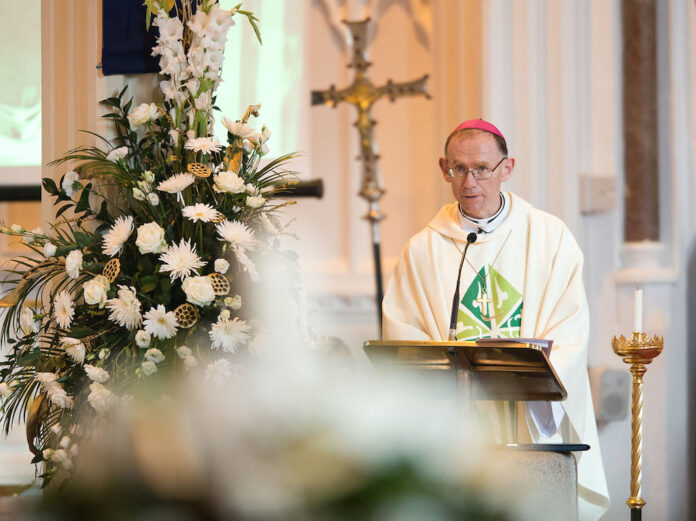Bishop Fintan Monahan shares the concerns of some people who fear Christmas Day will soon succumb to the demands of commercial pressure in the same way as Good Friday.
Reflecting on the end of restrictions on the sale of alcohol in licensed premises on Good Friday, the Bishop of Killaloe has pointed out that many people have noted that the only two unique family days where alcohol could not be purchased were Christmas Day and Good Friday.
However, the bishop believes it is now “just a matter of time until Christmas Day will succumb to the demands of commercial pressure in the same manner”.
He described Good Friday as a special day in the Christian calendar, as it commemorates the death of Jesus Christ. He said it is a special day of mourning and a day when many Christians attend special religious ceremonies.
Traditionally, because of the importance of the day and because it was the penultimate day of Lent, public houses were closed in sympathy with this important commemoration. For years, it was, for many people, an alcohol-free day, a family day, a day when people were free to attend religious devotions, a day of fast and abstinence.
Bishop Monahan said, “In recent years, it had been argued that the old reality in Ireland had changed, with the decline in religious practice and the influx of people from other cultures, religions and none. It was argued that publicans, the tourist industry, sporting events and regular pub customers were being negatively impacted because of the Good Friday restriction on the sale of alcohol.
“The outcome of that campaign around this resulted in the lifting of the ban for the first time this year. Despite this, many Catholics will still observe the long-standing approach of abstaining from alcohol and visiting pubs on Good Friday, observe the traditional approach of attending devotions and ensuring the day is kept as a family day. In churches all over, it is one of the best attended and most meaningful days for many people, as they can relate, through experience, to the consolation offered and challenge given by the redemptive suffering of Jesus out of love for us,” he said.
While not attempting to challenge or oppose this new approach in order to address a changing reality and a demand by some, the bishop admitted that the new regulation does, however, throw up a number of issues worth reflecting on.
He told The Clare Champion it is interesting that publicans in some villages in rural Ireland have opted not to go along with the change, deciding instead to ignore it. They contend, he explained, that in their locality, there is no demand for the lifting of the ban and argue that it would impact negatively on themselves, as publicans, as it was traditionally a day off in the trade.
He said they have also argued that it would upset the harmony of many families, who often took the opportunity to be together.
Commenting on Ireland’s unhealthy relationship with alcohol, the bishop noted that the negative impact of this is rarely addressed to any degree of seriousness.
“Perhaps this topic could profitably be addressed with more diligence by civil, State, church and educational authorities. Could it be more in the nation’s interest to be proposing and encouraging more alcohol-free days, rather than abandoning the few that already exist?” he asked.
“In recent days, during the festivities of the national holiday weekend, while much of the celebration associated with the event was so joyful, happy and appropriate, it was also regrettable to see the dependence on alcohol in many locations and that this is so ingrained in the social fabric and general celebration of our citizens.
“It is worth reflecting on the mounting pressure on our many unique Irish traditions to conform, adapt and make way completely to new ideas. Often, this is a positive and welcome change but it might not always be. Many visitors come to Ireland for the uniqueness of our lifestyle, for the different way we have of doing things, to sample our time-honoured, local traditions and way of life. I just wonder if the loss of our distinctive characteristics in the name of progress is always a good thing,” Bishop Monahan concluded.
Dan Danaher
A native of Ennis, Colin McGann has been editor of The Clare Champion since August 2020. Former editor of The Clare People, he is a journalism and communications graduate of Dublin Institute of Technology.



